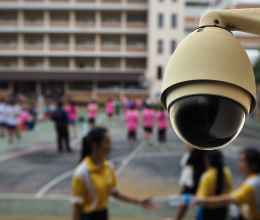
Newark — The American Civil Liberties Union of New Jersey (ACLU-NJ) applauds today’s decision by the state appellate division to strike down a Bergen County school district’s policy that allowed officials to discipline students for activities that occurred outside of a school setting. The ACLU-NJ had submitted a friend-of-the-court brief which explained that New Jersey law prohibits school districts from imposing consequences for off-campus conduct that does not negatively impact school safety.
“A disciplinary policy that seeks to control a student’s conduct 24 hours a day, seven days a week threatens the rights of students and parents both,” said Edward Sholinsky of the law firm Schnader Harrison Segal & Lewis, who along with colleagues Marieke Tuthill Beck-Coon and Sam Silver, wrote the amicus curiae brief for the ACLU-NJ. “The court’s decision represents a key first step in tempering student discipline policies that are overreaching.”
The court’s decision, which upholds prior rulings by an Administrative Law Judge and the Commissioner of Education, sets an important precedent against so-called “24/7” school discipline policies, a growing trend in which districts have tried to exercise greater power over students outside the classroom. The appellate division held that New Jersey statutes do not grant “unlimited power to boards of education to impose disciplinary consequences on students for conduct occurring away from school grounds” but, rather, limit that power only to situations where “there is a close nexus between the misconduct and the school.”
The policy at issue in this case, known as regulation 6145, was passed by Board of Education for the Ramapo Indian Hills Regional High School District. The policy called for students to be removed from extracurricular activities for wrongdoing outside of school -- even if the allegations were unsubstantiated. The district argued that it could take such administrative actions because participation in extracurricular activities is a privilege, not a right. The appellate division properly rejected that argument, stating, “The Board's clear intent in adopting regulation 6145 was to use the control it has over students' participation in extracurricular activities as a form of discipline to enforce its code of conduct.”
“Schools play a dominant role for most children, but that unique status does not grant them carte blanche in the lives of students,” said ACLU-NJ Legal Director Ed Barocas. “The close institutional ties between a school system and a young person do not extend authority to administrators in spheres entirely separate from the academic environment. Unless a student’s behavior outside of school directly and substantially disrupts the school, discipline rests with the parents and the juvenile justice system.”
The decision in the case, captioned GDM v. Board of Education of the Ramapo Indian Hills Regional High School District, can be read online, as can the ACLU-NJ’s amicus brief.





